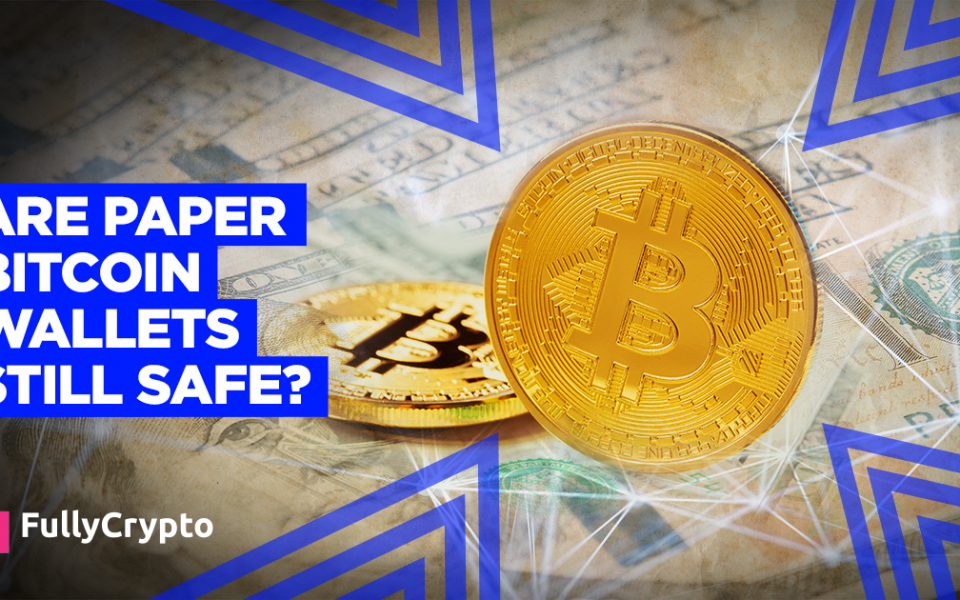Are Paper Bitcoin Wallets Still Safe?
Reading Time: 2 minutes
- Paper Bitcoin wallets were the only way to store your bitcoin offline for many years
- There are however several security concerns around the practice now
- Are paper Bitcoin wallets still safe or should the idea be shredded for good?
With all the variations of Bitcoin wallet available now, the concept of a paper Bitcoin wallet seems archaic. However, even though hardware wallets have been on the scene for over eight years, paper Bitcoin wallets are still used by those who don’t, for whatever reason, trust the storage devices, or the companies behind them. The question is, with crypto a very different place compared to where it was a decade ago, are paper Bitcoin wallets still safe?
Old School Bitcoin Storage
Paper Bitcoin wallets first gained popularity in 2011 and were used until hardware wallets became more ubiquitous in 2015-16 and replaced them. A paper Bitcoin wallet is simply a QR code which links to your public address, and a separate piece which is your private key for accessing it.
They were typically held at home or, for ultimate safety, in bank deposit boxes, and for many years they kept plenty of bitcoin safe. However, over time it became clear that there were fundamental flaws in the method, flaws which still exist today.
Is It Secret…Is It Safe?
The first issue with paper Bitcoin wallets is the potential for damage. Unless you take steps to protect the piece of paper you’re printing on, it can get damaged by water, fire or other means, meaning you no longer have access to the address. It is much harder to damage a hardware wallet in this way, although, of course, both can be lost. However, it’s easier to misplace an unfiled piece of paper than a hardware wallet.
Using a paper wallet also promotes address reuse, which is something that crypto advocates do not recommend on security grounds. While we’re on the subject of security, printers have memories, so someone could, in theory, get your public and private key from a printer once you’ve printed it. And then there’s the issue of the browser on which you created the wallet – if that wasn’t done securely, then it could be goodnight Vienna.
Impractical Makes Imperfect
Next comes the practicality. Of course, paper wallets are not meant to be readily accessible, but if you do suddenly need to get some funds you have to go through a whole importing process which can take an age. Compare this to plugging in your hardware wallet and you’ll see why paper wallets have fallen out of favour.
There are more nuanced arguments as to why paper Bitcoin wallets should no longer be used, but these critical ones should be enough to make you realise that this is indeed an archaic practice that served its purpose back in the day, but now presents a huge security risk.
